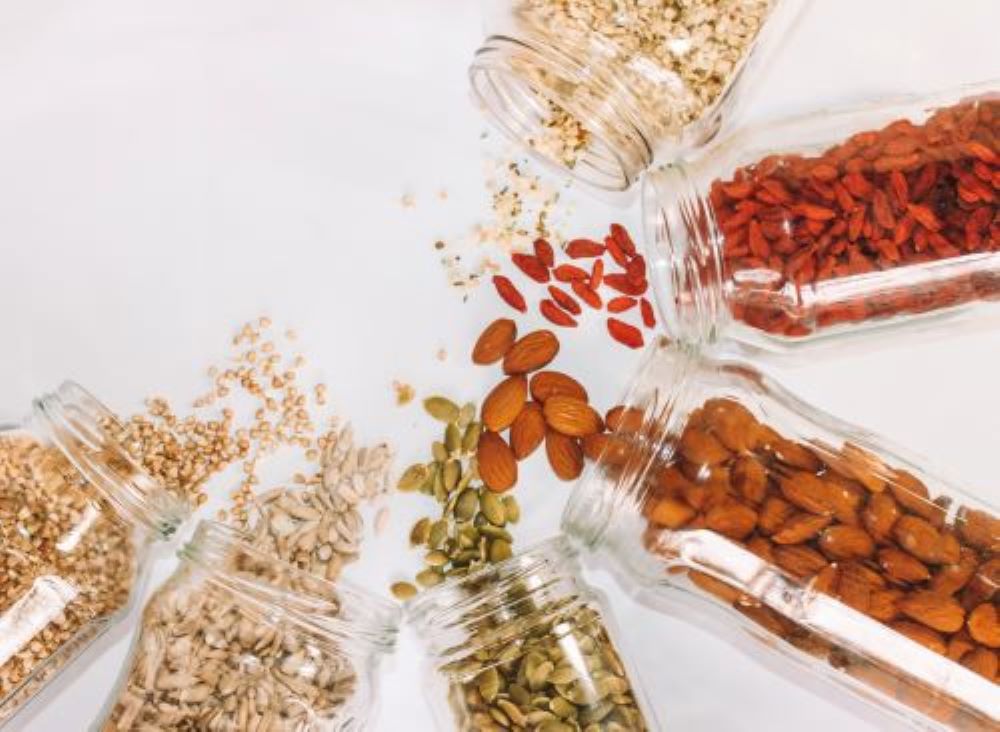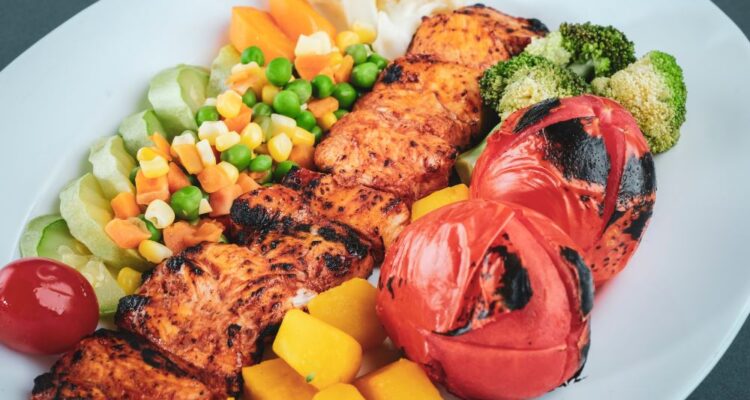We are all aware from the media that including superfoods in our diet is meant to be good for our health. These foods often seem to come with a high price tag, but could we gain the same benefits without the expense if we simply choose the right nutritional foods? And if so, why are we expected to pay more?
Superfoods is a marketing term that promotes a range of products or ingredients to you because of their nutritional benefits. By making these products popular, it enables companies to give them a higher price tag than other foods that may have the same, or even better, nutritional value.
By getting to know the nutritional value of superfoods and why we are led to believe they deserve their inflated price tag, it is perfectly possible to find less “celebrity” ingredients that will give you the same nutritional benefits. You can then make an educated decision as to when to buy into the superfood hype and when you can save yourself some cash without compromising your health.
Why are some foods considered superfoods?
Superfoods are usually plant-based foods, but some can be fish or dairy. They are considered to be good for your health because they are nutritionally dense. There are not currently any set criteria for determining what is or what is not a superfood. They don’t have their own food group either.
Superfoods do have things in common though. They tend to be foods that contain a variety of nutrients like antioxidants. They also have healthy fats (considered to prevent heart disease) and fibre (thought to prevent diabetes and digestive issues).
What pushes up the price of superfoods?
Scientists claim that there is no root in academic research regarding superfoods. It is largely used as a marketing tool to increase the prices of certain foods. These specific foods’ health benefits are overly hyped and made to look as if they are better than other foods with similar nutrition.
As superfoods have increased in popularity, particularly in the vast markets of the United States they have become increasingly expensive across the world.
Many of the superfoods most loved are grown internationally as well. Concerns over deforestation and physical labour needed to grow and harvest some superfoods in such quantities has also caused an exponential rise in prices.
Another massive concern now with superfoods is that even though the food itself might be healthy, the method of processing it for retail might not be. In order to capitalise on the superfood market, companies might be putting higher prices on items that contain superfoods or some flavour from it even where the value of nutrition has been reduced.
Some examples are:
- Pomegranate juices contain large amounts of additional sugar.
- Bottled green teas are made with inferior teas without the nutritional value.
- Whole grains can be processed to be more palatable, but this reduces nutrition.
This raises the question as to why, if the nutrition in these items is being compromised, are they still being sold as superfoods, and why are you still paying that higher price tag?
With the expense crisis and people generally unable to afford superfoods, many are now questioning whether these types of food are worth the hype. Do they really provide decent benefits, or is it due to trends from the market and the media?
Many people now reconsider whether to spend money on these labelled superfoods or to seek out items with similar nutritional benefits but a more budget-friendly cost.
Common superfoods and their (just as healthy) alternatives
Blueberries are often at the top of the list of healthy foods because they are rich in antioxidants, phytochemicals, vitamins, and soluble fibre. Many are unaware that you can find the same nutrients in blueberries that you find in other berries, such as strawberries and cranberries. These berries may have all the same benefits of reducing certain heart diseases, but blueberries have made the top of the list because they have been more frequently studied. Blueberries are almost twice the price of strawberries for the same benefits.
Kale is one superfood that lives up to the hype it has attracted. But so do most dark, leafy greens such as Swiss chard, greens and spinach. These dark vegetables are loaded with vitamins A, C, K, and calcium, other minerals, and fibre. Kale, again, can be highly overpriced, only because the media has claimed it above its other dark green relatives.
Beans and whole grains are standard on the superfood list. Beans are a source of low-fat protein. They contain insoluble fibre, which lowers cholesterol, and soluble fibre, which provides a feeling of fullness. They also have loads of vitamins and trace minerals. Whole grains have similar benefits to those found in beans but do not contain as much protein. Beans and wholegrains do not need to be fancy. It is possible to pick them up, without the superfood packaging, in any supermarket and even from a tin, they retain their nutritional goodness.

Nuts and seeds have a high level of minerals and healthy fats. These are commonly known superfoods but have one downside – they are high in calories. Another thing they are incredibly high in is the price. It is easy to feel like you have burnt through your wallet from buying just a handful of nuts. But the good thing is, you don’t need loads of them to reap the benefits. One packet can go a long way.
Salmon, sardines, mackerel, and certain other fatty fish are rich in omega-3 fatty acids. Omega-3 is considered to lower the risk of heart disease and strokes. While these fish do contain mercury, the benefits of eating them may far outweigh the risk of harming your health. Fish, especially fresh, can be pricy. However, you can source omegas from elsewhere like a supplement which can last you a whole month compared to paying the same price for one serving of salmon.
A superfood list is likely also to have at least one exotic fruit on it. This could be acai berry, dragon fruit, or pomegranate. These fruits are generally healthy, but scientific studies don’t show that they are more beneficial than less exotic (less expensive) fruits.
Do you need to pay the price for superfoods?
Quite often, readily available, affordable, and perfectly nutritious food is hijacked and reinvented as a superfood. It is then sold at a premium price. Consider that the average cost of super berries like goji or acai is ten times higher than simple raspberries or blackberries.
People can get duped into believing they have to spend loads of money or buy hard-to-pronounce ingredients to be healthy and reach their physical goals. But by getting to know what is beneficial in superfoods it is possible to make easy substitutions that ease your food shopping bill but don’t compromise on nutrition.
How to get the benefits of superfoods without paying the price?
You can get all your health benefits from plenty of other nutritional food sources without breaking the bank.
The first step to making the change is to research the benefits of the specific superfoods. Then you can search other sources of those characteristics. Once you find that, compare prices and be amazed.
Here are some alternative options that have similar benefits but won’t break the bank:
- Spinach instead of Kale
Spinach is often cheaper and packed with tons of vitamin K and vitamin A. It is also higher in potassium and has double the amount of iron and magnesium. Buying spinach frozen makes things cheaper still and again, does not compromise on nutritional value.
Cauliflower is an equally nutritious swop for kale and can be spiced up and used creatively in your cooking to create really tasty dishes.
- Raspberries instead of Goji Berries
You will probably be surprised to know that raspberries have more potassium and fibre than goji berries. They also have significantly less sugar. Almost no other fruit can provide a diversity of antioxidant and anti-inflammatory properties.
- Sauerkraut instead of kimchee
Kimchee has recently grown in its popularity in the superfood list as a fermented dish from Korea. Fermented foods improve the microbiome to support digestion and immune function. Sauerkraut, in this instance, is a less expensive and easy addition to all the dishes as an alternative to kimchee. It is a staple in Germany and whilst less well known in the UK it is easy to find a recipe for it.
- Millet instead of Quinoa
Here is another much more affordable option compared to the famous quinoa. Millet is an ancient, gluten-free grain that cooks up the same way as quinoa. There is a similar nutritional profile, texture, and nutty taste.
Lentils are another great alternative to quinoa. They typically contain more protein. They are pretty cheap and have loads of fibre. They also cook up fast like quinoa and if you are looking to stretch your quinoa, combine it with some lentils.
- Sesame or Flax Seeds instead of Chia Seeds
Chia is well known in plant-based diets specifically for its proteins, potassium, fibre, fatty acids, and minerals such as phosphorus, manganese, calcium, and sodium. They are pretty expensive for a small amount and not as easily found in supermarkets. On the other hand, flax seeds are easily accessible and contain the same nutritional characteristics.
Sesame seeds have twice the iron and are higher in calcium, vitamin B6, magnesium, potassium, and protein. Importantly, they are much more affordable.
- Cranberry Juice instead of Pomegranate Juice
The ever-popular pomegranates and juice are rich in antioxidants and are known to fight against heart disease and cancer, but they come with a high price tag. It is one of the most expensive juices out there. The antioxidant-rich, unsweetened cranberry juice is a perfect substitute and costs about half as much.
Conclusion
Superfoods are foods with known benefits for our health. However, some they have often been marketed to seem exotic and subsequently become over-priced. There are multiple substitutes that you can buy at a lower price without compromising on the nutritional benefits and they are readily available wherever you shop.
Related reading
You may also be interested in reading How to Choose the Right Supplements, The Best Natural Antibiotics, The Benefits of Matcha Tea and The Best Foods to Boost Your Immune System.
If you’re looking for supplements, vitamins, minerals or just some helpful information, we have some other lists that you may find useful.
- All vitamin and mineral lists
- Best Collagen Supplements UK
- Turmeric Supplements
- Best Ashwagandha
- Best Multivitamins
- Nootropic Supplements
- Best Mushroom Supplements
- Greens Blend Supplements UK
This site is a participant in affiliate advertising programs designed to provide a means for sites to earn advertising fees by advertising and linking to products and services. We participate in programs from Amazon, eBay, CJ, Awin, Viglink and other sites. We are compensated for referring traffic and business to companies linked to on this site.

